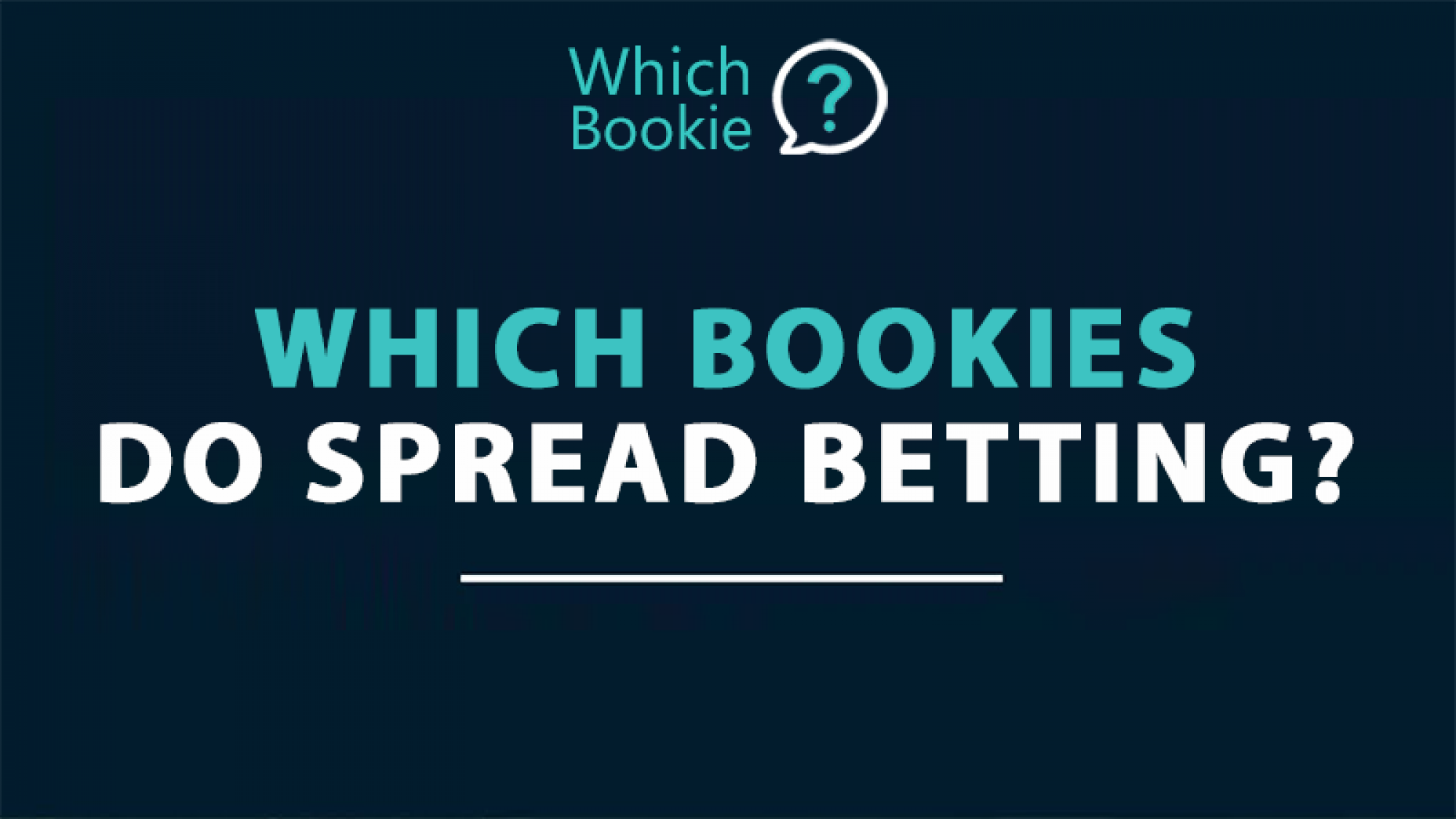Here you'll find football corners betting tips from our expert football analyst, Liam Johnson. All of the corner predictions published here on WhichBookie are 100% free.
If you are interested in spread betting then your options are more limited than if you wish to place fixed-odds sports bets with a bookie. However, there are a couple of excellent and well-established spread betting sites where you can place sports spread bets.
In this article, we’ll take a look at the various spread betting options and go through how spread betting works.
| Site | New Customers Get | Review | Visit |
|---|---|---|---|
 | £300 Cash or an iPad | Read Review | Visit |
 | £75 Free to Spread Bet with | Read Review | Visit |
Spread betting is an alternative to fixed-odds betting and involves you predicting the outcome of a given market.
The ‘spread’ is a range in which the outcome of the market is expected to fall in. For example, if the spread of a Total Goals market in a football match is 2.9 – 3.1, this is the number of goals (3) on average that is expected to be scored in the game. You can then bet on either the BUY or the SELL price of the spread.
Using the example above, if you think there will be more than 3 goals scored in the match, you would BUY.
Similarly, if you think there will be fewer than 3 goals scored in the match, you would SELL.
In fixed-odds betting, you know exactly what your profit and loss will be should your bet win or lose. However, with spread betting, the amount which you will profit and lose depends on how close to the spread the outcome of the market is.
Again, using the Total Goals example above, if you choose to BUY, you will win more the more goals which are scored over 3. However, you will lose more the fewer goals there are.
If you choose to SELL, you will win more the fewer goals scored and lose more the more goals which are scored.
This is one of the main differences with spread betting compared to fixed-odds betting. There is the potential for huge returns but also the potential for big losses should you get your prediction wrong by a wide margin.
To help explain things further, let’s take a look at an example spread bet.
Note that spread betting is possible across various sports and markets such as betting on Tennis matches at Wimbledon, The Masters Golf or when your betting on the World Cup.
We’ll stick with the Total Goals market example with a spread of 2.9-3.1 and use a stake of £10 per point.
To calculate your profit / loss on a spread bet, you can use the following formula:
(Settled Price – Buy Price) x Stake
With the Total Goals market, the ‘Settled Price’ would be the number of goals scored in the match and the ‘Buy Price’ would be the price you took.
For example, if the match ended 0-0, the settled price would be 0. If you placed a £10 BUY bet on this market at 3.1, the outcome would be:
(0 – 3.1) x £10 = £31 Loss
This would be the maximum loss you could make on the bet as the Settled Price can’t be any lower.
If the match finished 5-2, the Settled Price would be 7 and so the outcome would be:
(7 – 3.1) x £10 = £39 Profit
As you can see, if you place a BUY bet:
We also have the option of placing a SELL bet.
To calculate your returns from a SELL bet, you can use the following formula:
(Buy Price – Settled Price) x Stake
If we placed a £10 SELL bet at 2.9 and the match ended 0-0, the outcome would be:
(2.9 – 0) x £10 = £29 Profit
If the match ended 5-2, the outcome would be:
(2.9 – 7) x £10 = £41 Loss
With this bet, you make more profit when there are less goals and a greater loss when there are more than 3 goals.
It’s handy to know how to calculate your returns manually but it’s often a good idea to double check your calculations using a Spread Betting Calculator. There are several of these available for free online but SpreadEx provide a free spread betting calculator which is extremely useful and can be found on this page of the website.
Alternatively, you can use the spread betting calc below.
You don’t pay commission as such when spread betting like you do when you bet with a betting exchange. However, spread betting sites profit from both Buyers and Sellers.
For example, with a Total Goals spread of 2.9 – 3.1, if the match ended with 3 goals scored, both Buyers & Sellers who bet £10 per point would lose £1 on there bet.
As a punter, you want to look out for a tight spread where there is minimal difference between the BUY & SELL prices. If the spread is wide, it makes it harder to generate a profit in the long-term.
There are two types of spread betting for UK residences. Sports spread betting and financial spread betting. We recommend visiting Spread-Bet.co.uk by Justin Grossbard for the latter.
Some punters prefer spread betting to fixed-odds betting for various reasons including:
There are risks when it comes to spread betting which should be understood before placing any bets.
Here are some spread betting tips which may help you be successful with spread betting and which can help reduce the chances of large losses.
By calculating the worst-case scenario, you’re able to determine the maximum amount you can lose on your bet which can help avoid any large potential losses.
In the example above, our BUY bet on the total goals market had a maximum loss of £31. This means that if we are comfortable losing £31 should things not go our way, we won’t be in financial trouble. However, in the SELL example, the potential for large losses was a lot greater as we would lose more with each goal scored above 3. There is no cap on this which means we could incur substantial losses.
With many spread betting sites such as SportingIndex and SpreadEx, you can bet as little as 1p on selected markets. We strongly advise you to bet with small stakes until you get used to how spread betting works and the volatility of the different markets.
Some markets are more volatile than others meaning that they have a greater chance of producing an outcome significantly above or below the spread. This can result in potentially huge profits but also potentially large losses.
When you are starting out with spread betting, it is recommended to stick to the less volatile markets.
You won’t win every spread bet you place and occasionally they can go very wrong. If you have placed a bet which is looking like you could incur large losses should it get any worse, consider cashing out your bet to avoid this from happening. Cutting your losses can protect your remaining bank and allow you to move on to your next bet.
It’s a good idea to have a plan in place should things not go your way. What is the maximum loss you’re prepared to make? What outcome would have to happen for your to incur such a loss? If this trigger occurs, it may be time to cut your losses and cash out.
One reason why spread betting is so popular is that your knowledge of a sport, team, player or market can have a huge impact on whether or not you make a profit. Having an in-depth knowledge of these things can help you make better selections and stand a better chance of your bets returning a profit.
| Site | New Customers Get | Review | Visit |
|---|---|---|---|
 | £300 Cash or an iPad | Read Review | Visit |
 | £75 Free to Spread Bet with | Read Review | Visit |
